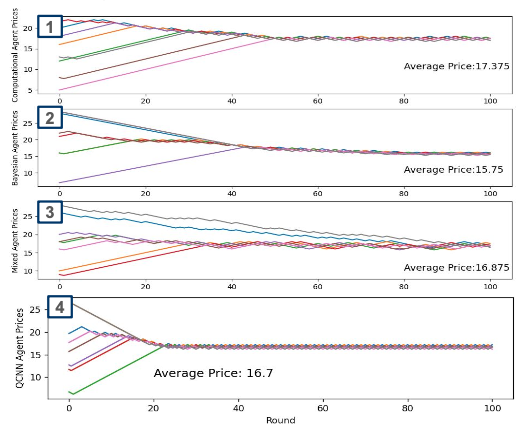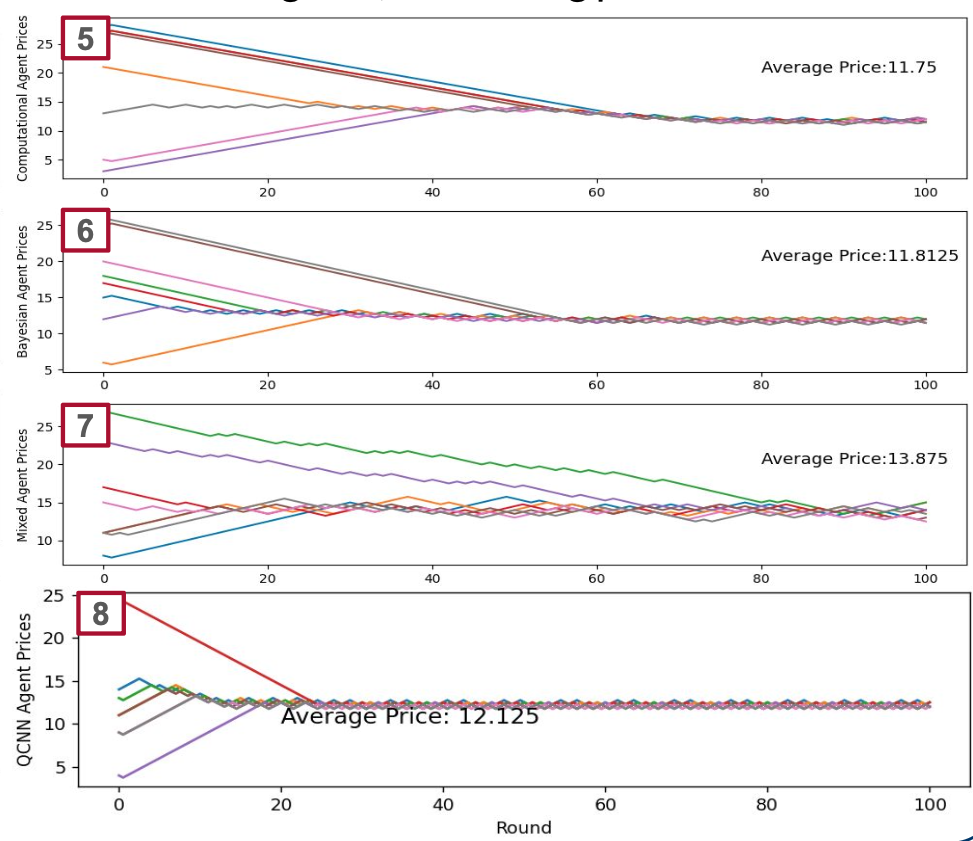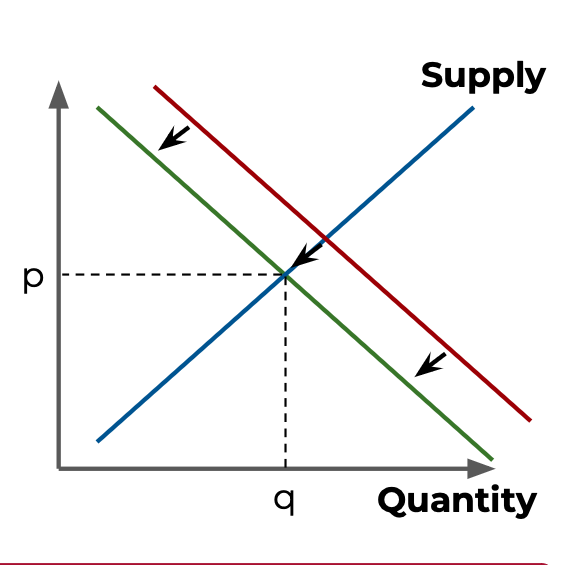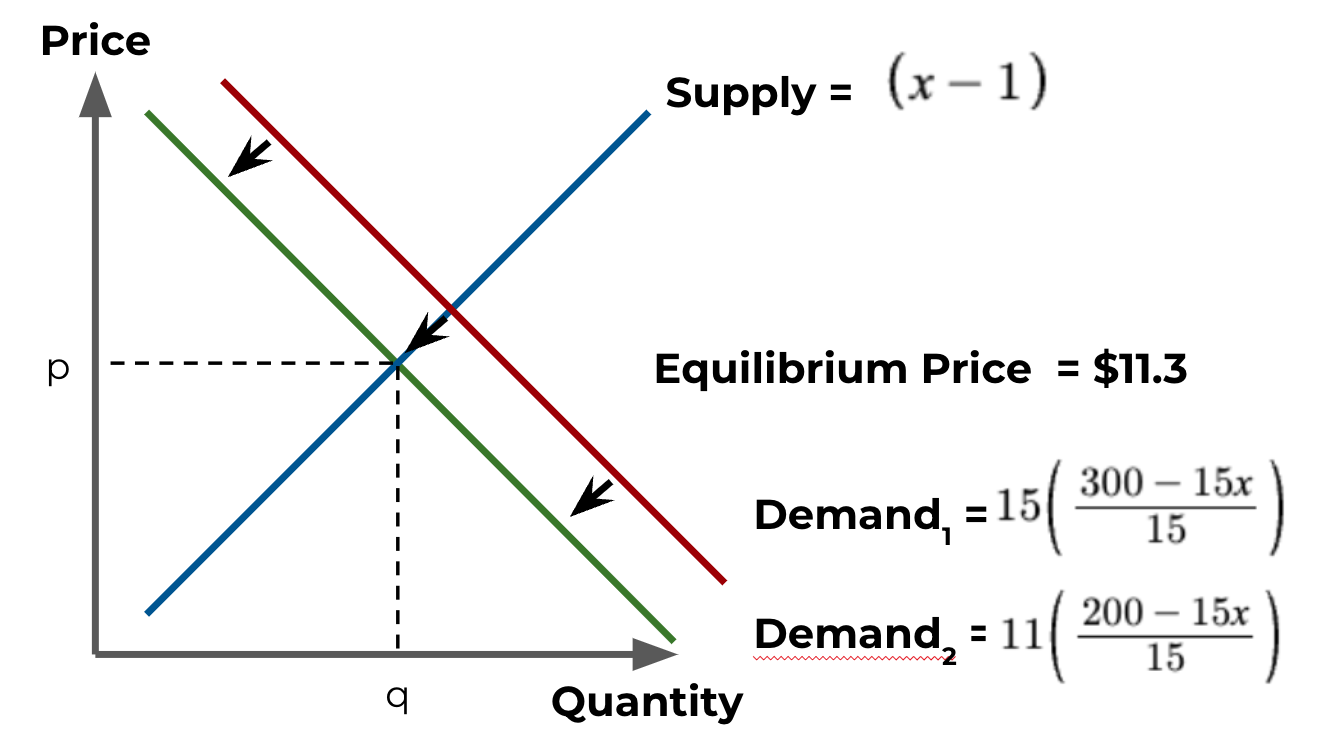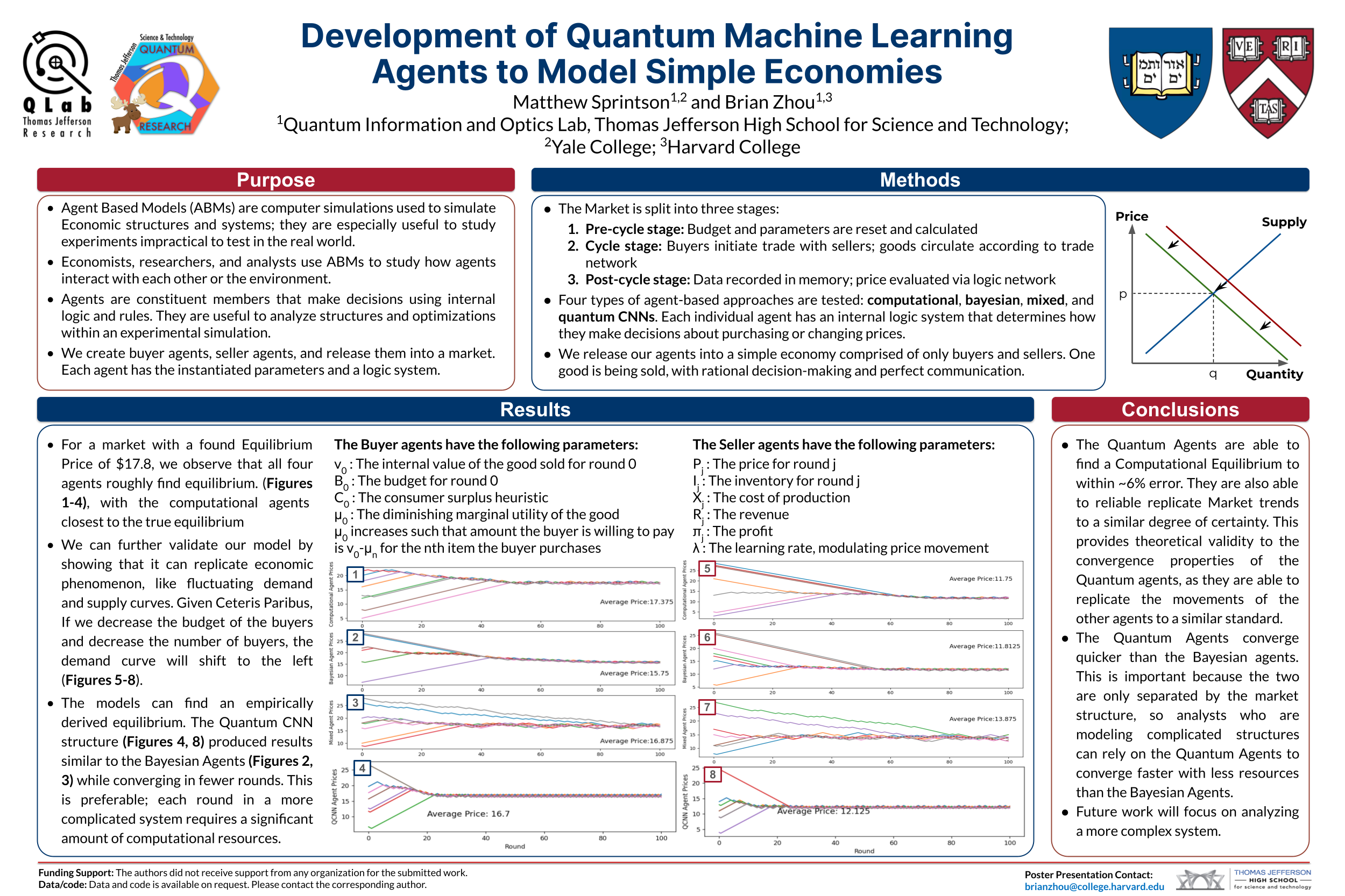Using Quantum Agents to Model Simple Economies
By Daniel Sprintson, Brian Zhou
Agent-based modeling can study any social behavior and decision-making process, as agents make decisions based on an internal logic network and try to imitate human behavior. Proponents say that models based on agent interactions can inspire insight into policy and predict aggregate human behavior. Detractors concern themselves with the applicability of these results and whether such agents can fundamentally capture the nuance of human behavior. The solution lies in additional scale and complexity, often expensive to simulate and impossible with current computational methods for simulation. In this paper, we explore a new approach to agent-based modeling incorporating the properties of quantum mechanics and quantum computing. We build quantum adaptive long-term learning agents to measure the influence of external stimuli on a simple business structure comprised of those agents and evaluate the performance benefits from a quantum approach, comparing results with conventional Bayesian and Computational agents.
Files and Resources
Files are coming soon!
Photo Gallery
